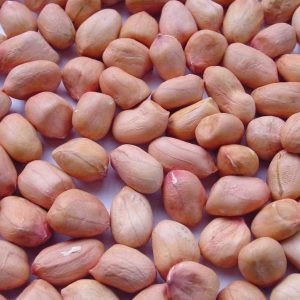Peanuts, along with beans and peas, belong to the single plant family, Leguminosae. Legumes are edible seeds enclosed in pods. As a group, they provide the best source of concentrated protein in the plant kingdom. While their physical structure and nutritional benefits more closely resemble that of other legumes, their use in diets and cuisines more closely resembles that of nuts.
Peanuts are rich in energy (567 calories per 100 g) and contain health benefiting nutrients, minerals, antioxidants and vitamins that are essential for optimum health.

They compose sufficient levels of monounsaturated fatty acids (MUFA), especially oleic acid. MUFA helps lower LDL or “bad cholesterol” and increases HDL or “good cholesterol” level in the blood. Research studies suggest that the Mediterranean diet which is rich in monounsaturated fatty acids help prevent coronary artery disease and stroke risk by favoring healthy serum lipid profile.
Peanut kernels are a good source of dietary protein; compose fine quality amino acids that are essential for growth and development.
Research studies have shown that peanuts contain high concentrations of polyphenolic antioxidants, primarily p-coumaric acid. This compound has been thought to reduce the risk of stomach cancer by limiting the formation of carcinogenic nitrosamines in the stomach
The nuts are a rich source of minerals like copper, manganese, potassium, calcium, iron, magnesium, zinc, and selenium.


